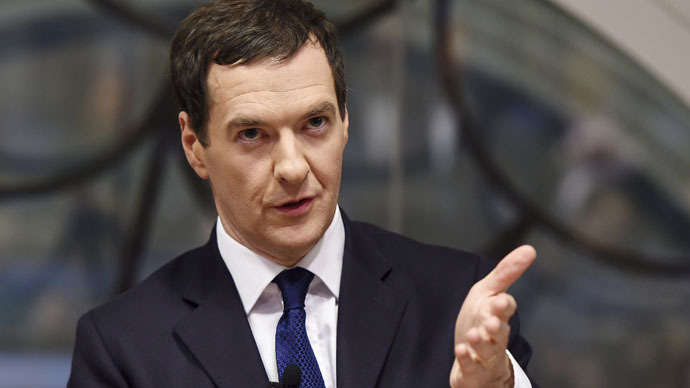Grexit: Britain braced for ‘serious economic risk’

Prime Minister David Cameron’s spokeswoman has announced the UK is “stepping up” preparations for the “serious economic risk” which would ensue should Greece opt to leave the Eurozone.
READ MORE: ‘Last attempt’ debt negotiations fail as Greece rejects more austerity
READ MORE: Greek failure would mean eurozone end – Tsipras
Her remarks come as Cameron meets with the leaders of Italy and Luxembourg on Wednesday to discuss the Greek financial crisis.
Government officials held contingency planning talks in February to evaluate the possible implications of a Grexit, but they have since stepped up their preparations following revelations that Greece could default on its debts.
Cameron’s spokeswoman said Chancellor George Osborne had discussed the matter in the House of Commons on Tuesday, adding the authorities were taking “all steps to protect ourselves from such eventualities.”
“We are continuing to make sure we have the right plans in place and stepping up operations given where discussions have got to. We don’t go into the specifics of these plans but of course they will be looking at how we make sure we have looked at the impacts on business, the banks and the financial sector and tourists,” she said.
“This is about making sure we are as prepared as we can be. Of course, the potential default does present some serious economic risks, so alongside contingency plans it is about making sure we have an economy that is growing and that our public finances are in good order,” she said.
Finance ministers from Eurozone countries will discuss the crisis on Thursday, but it is not expected a landmark decision will be made.
Greek Prime Minister Alexis Tsipras criticized the demands made by Athens’ creditors on Tuesday, accusing the International Monetary Fund (IMF) of having “criminal responsibility” for the Greek economic crisis.
The government contingency plans involve procedures to prevent a run on the banks if Greece looks likely to default on its debts, including limiting bank withdrawals and focusing on the implications for British tourists in the country.
They are also reportedly examining the longer-term implications on the British banking system and the potential instability caused by a debt default.
If Greece is to avoid a default, it must reach an agreement with its creditors before its current bailout plan expires on June 30.
If it cannot reach an agreement, the Syriza government will be unable to access the €7.2 billion in loans which are currently frozen due to the country’s inability to decide on pension reforms and tax rates.
On Wednesday, the European Central Bank (ECB) will decide whether to continue providing Greece with emergency liquidity funds which allows banks to continue working.
The ECB has loaned the country approximately €82 billion.












